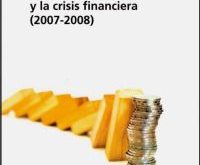My philosophy of economics A critique yours truly sometimes encounters is that as long as I cannot come up with some own alternative to the failing mainstream theory, I shouldn’t expect people to pay attention. This is, however, to totally and utterly misunderstand the role of philosophy and methodology of economics! As John Locke wrote in An Essay Concerning Human Understanding: The Commonwealth of Learning is not at this time without Master-Builders,...
Read More »Robert Lucas in praise of superficiality
Robert Lucas in praise of superficiality To observe that economics is based on a superficial view of individual and social behaviour does not seem to me to be much of an insight. I think it is exactly this superficiality that gives economics much of the power that it has. Its ability to predict human behaviour without knowing very much about the make up and lives of the people whose behaviour we are trying to understand. Robert Lucas
Read More »Mainstream economics — a case of explanatory disaster
Mainstream economics — a case of explanatory disaster To achieve explanatory success, a theory should, minimally, satisfy two criteria: it should have determinate implications for behavior, and the implied behavior should be what we actually observe. These are necessary conditions, not sufficient ones. Rational-choice theory often fails on both counts. The theory may be indeterminate, and people may be irrational. In what was perhaps the first sustained...
Read More »User guides to models
User guides to models In Dani Rodrik’s Economics Rules it is argud that ‘the multiplicity of models is economics’ strength,’ and that a science that has a different model for everything is non-problematic, since economic models are cases that come with explicit user’s guides — teaching notes on how to apply them. That’s because they are transparent about their critical assumptions and behavioral mechanisms. Hmm … That really is at odds with yours truly’s...
Read More »Los economistas y la recesión
Los economistas y la recesión Torrero despliega en su libro todo un arsenal de citas que ponen de manifiesto su profundo conocimiento y sus exhaustivas lecturas del tema. Y, aunque, como dije, el tono del autor es muy comedido, los textos que aduce muestran lo acerbo de los reproches que se han hecho a los teóricos de las «expectativas racionales» y los «mercados autorregulados». Hay quien dice (Nassim N. Taleb) que «los premios Nobel no son sólo un insulto...
Read More »‘Minibot’ — cosa sono e che rischi comportano
‘Minibot’ — cosa sono e che rischi comportano Si torna a parlare di “minibot”. A un anno esatto dalla formazione del Governo, la Camera dei Deputati ha votato all’unanimità una mozione che lo impegna a sbloccare il pagamento degli arretrati dovuti a professionisti e imprese anche ricorrendo a “titoli di Stato di piccolo taglio”, proprio come recitava il “contratto per il governo del cambiamento” siglato dai due partiti di governo. Ma perché mai lo Stato...
Read More »Mainstream economics — an obscurantist and harmful waste of time
Mainstream economics — an obscurantist and harmful waste of time One may perhaps, distinguish between obscure writers and obscurantist writers. The former aim at truth, but do not respect the norms for arriving at truth, such as focusing on causality, acting as the Devil’s Advocate, and generating falsifiable hypotheses. The latter do not aim at truth, and often scorn the very idea that there is such a thing as the truth … These writings have in common a...
Read More »So much for ‘independent’ central banks …
So much for ‘independent’ central banks … Or, manque de chance, un tiers environ des banquiers centraux de la planète sont issus du secteur bancaire et financier, et cette proportion augmente (« How Do Central Bank Governors Matter ? Regulation and the Financial Sector », Ariell Reshef et Prachi Mishra, Journal of Money, Credit and Banking, vol. 51, n° 2-3, mars et avril 2019). Même tendance chez les superviseurs des banques ou des marchés financiers. Mais...
Read More »On the use and misuse of randomisation
On the use and misuse of randomisation [embedded content] ‘Ideally controlled experiments’ tell us with certainty what causes what effects — but only given the right ‘closures.’ Making appropriate extrapolations from (ideal, accidental, natural or quasi) experiments to different settings, populations or target systems, is not easy. “It works there” is no evidence for “it will work here”. Causes deduced in an experimental setting still have to show that they...
Read More »Wren-Lewis vs MMT
Simon Wren-Lewis is obviously upset because some MMTers have called his economic policy proposals (providing the theoretical foundation for Labour’s Fiscal Credibility Rule) “neoliberal”. Neoliberal or not, what he does have to say about MMT and his own mainstream economics makes it clear what the debate really comes down to: MMT’s key idea is that fiscal policy (changing taxes and government spending) is better suited to stabilise the macroeconomy than a central bank setting...
Read More » Heterodox
Heterodox









